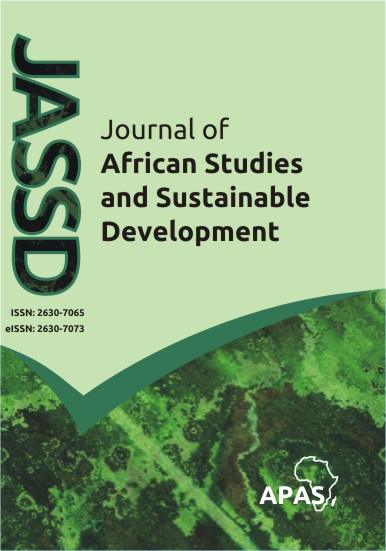 Journal of African Studies and Sustainable Development (JASSD) (Vol. 6 No. 4, 2023)
CORRUPTION AND DEMOCRATIC EROSION: A PHILOSOPHICAL EXAMINATION OF NIGERIA'S GOVERNANCE
Journal of African Studies and Sustainable Development (JASSD) (Vol. 6 No. 4, 2023)
CORRUPTION AND DEMOCRATIC EROSION: A PHILOSOPHICAL EXAMINATION OF NIGERIA'S GOVERNANCE
ABSTRACT
Corruption has been an albatross to Nigeria's democratic governance. Though the country has practiced democracy for 24 unbroken years now, the longest since its independence over six decades ago, democratic governance in Nigeria is fast being eroded by the pandemic of corruption. While it can be seen that democracy is working in the West, it is failing in Nigeria. Concerned observers have asked the question 'why is democracy failing in Nigeria?' There is a consensus among scholars and analysts at one common reason: corruption. Democracy -defined as popular rule- was designed to be populist in nature, with the people wielding enormous power to hire and fire who leads them every electoral cycle. However, corruption, with its cancerous spread across the Nigerian polity, has been a major setback to good governance in Africa’s most populous nation. The purpose of this article is to examine how and to what extent corruption has been eroding democratic institutions in Nigeria. Two theories of corruption -Two Public and Prebendalism were applied to answer the questions of the study. This article, based on direct study and use of secondary data, examines the impact of corruption on democratic governance in Nigeria. The paper revealed that Nigerians have not tasted good governance that a working democracy like those in the West offer. Thus, Nigerians have suffered numbing frustration from the brunt of bad governance which has increasingly eroded confidence in the leadership. Thus, the argument that democracy guarantees good governance has been disproved in Nigeria. Consequently, the paper recommended, among others, ways to curb corruption to release to the people the dividends of democracy.

